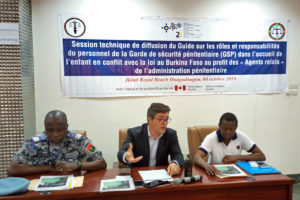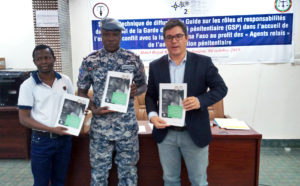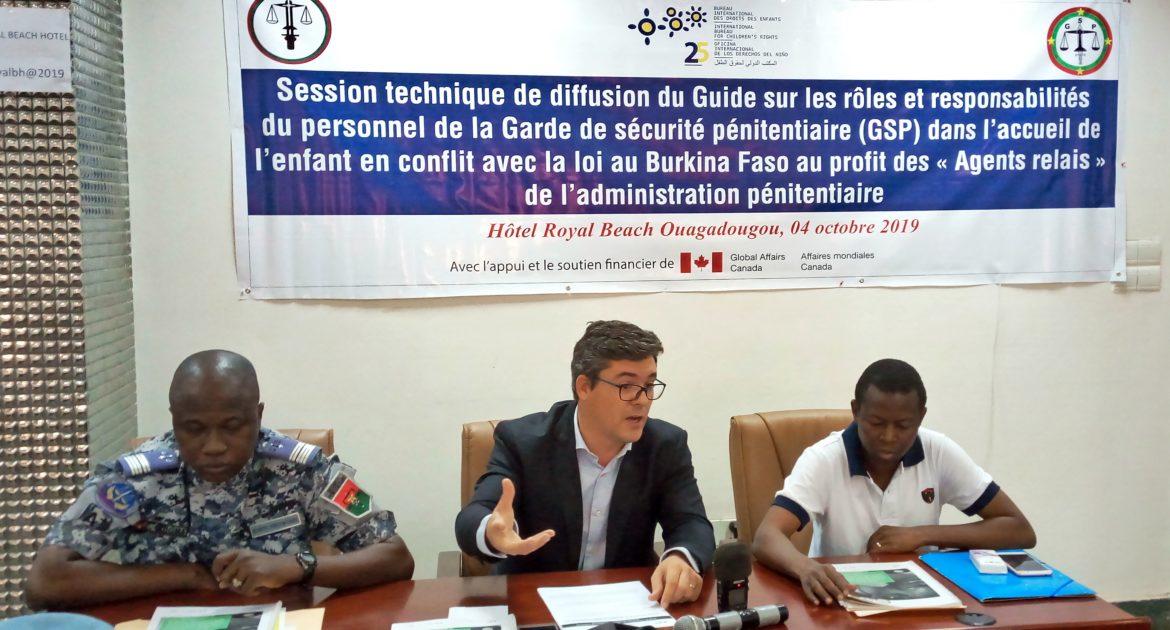
As part of the project to strenghten the capacities of actors in the child protection system in Burkina Faso, funded by Global Affairs Canada and implemented by the IBCR, two practical guides (or “operating procedures”) have been developped to improve the care of children in conflict with the law, targeting in particular the Police investigation and the child’s intake by the prison administration.
These guides are the result of work carried out in January 2019 with the Gendarmerie Nationale État-Major, and the National Police, Juvenile Justice and Prison Administration Directorates.
> Click here to see more about the IBCR project in Burkina Faso
These practical tools could be created thanks to the commitment of Ministries of Justice, Security and National Defence and Veterans Affairs to pay greater intention to the support of children in conflict with the law, and to guarantee an accompaniment, protection and respect of their rights, at all stages of the procedure, in accordance with national texts and international standards in the field of justice for children.
The objective is to clarify the roles and responsabilities of agents and officers of the criminal police, as well as of the staff of the Prison Security Guard with regards to a child’s case, in order to guarantee him/her a dignified and decent arrest, reception, hearing and decision-making, respectful of his/her rights and specific needs.
When we speak of children in conflict with the law, we are speaking of very specific needs, about considering precautions that are very different from those taken with adults.
<span class="su-quote-cite">Martin Causin, IBCR Burkina Faso Project Manager</span>These new tools aim to strenghten the principle of presumption of innocence of the child, to improve communications with the child, to involve him/her and his/her parents during all phases of the procedure, reiterate the importance of collaboration between professionals from different sectors (judges, lawyers, social services, health workers, etc.) and, above all, remind the staff concerned of the importance of taking into account the best interests of the child in every decision affecting him/her. In addition, these guides make the communication of the rights and duties of children deprived of their liberty an essential element during reception.
The guide dedicated to the prison administration calls on staff to respect the principle of life, survival and development of detained boys and girls, paying a particular attention to their well-being (health care, bedding, nutrition, etc.) and to pay more attention to children living with their detained mother and to children with disabilities.
The guide dedicated to the Police and the Gendarmerie highlights the priority given to the child’s release and the procedure to be followed to achieve it or, failing that, the clear steps and conditions leading to the child’s detention or custody. It also indicates the alternative measures to detention to be put forward, in particular the return of the child to his or her family, placement in foster care or with an association.
Starting this October 2019, the IBCR is organising meetings and workshops with the targeted professionals to disseminate the guides on a national scale, in order to set them as references to change practices in a harmonised way across the country. In addition, the concerned administrations also received new data collection and management tools, as well as a donation of IT equipment and a budget allocation to enable staff to carry out these mandates effectively.
Dissemination workshop of the Guide on criminal investigation, co-animated by National Police and Gendarmerie (Ouagadougou, 3rd of October):
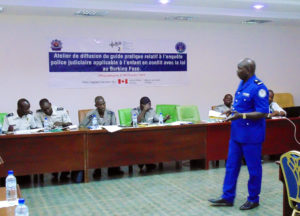
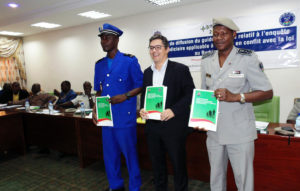
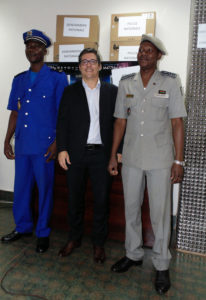
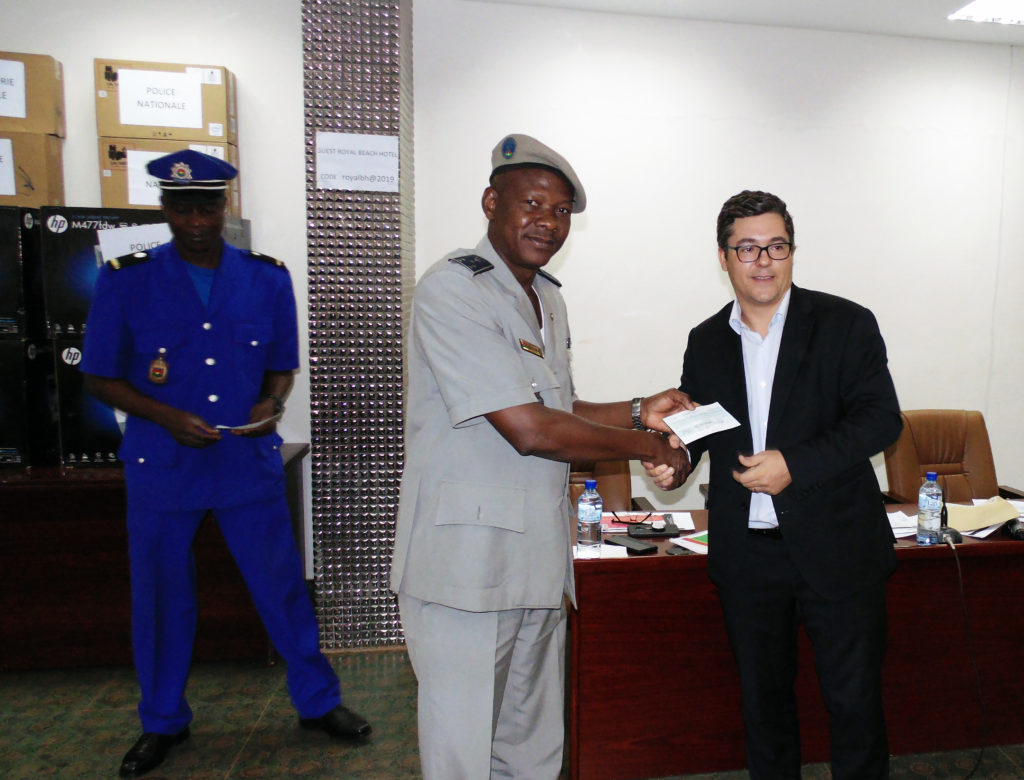
Dissemination workshop of the Guide dedicated to the Prison Security Guard (Ouagadougou, 4th of October):
